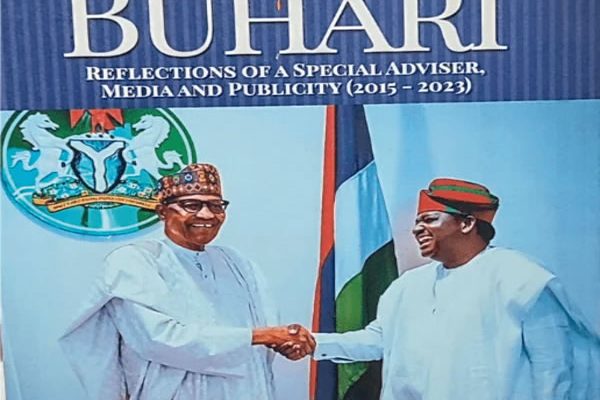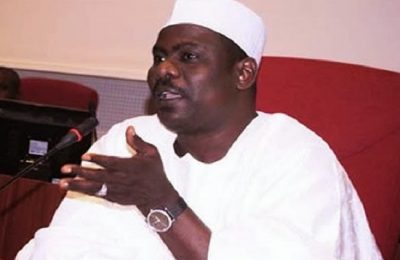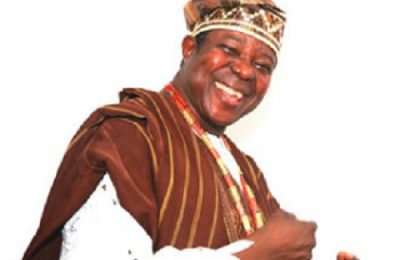All over the world, the relationship between politicians occupying big elective offices and their media aides is like the marriage between a bad husband and a frustrated wife with no option of a divorce. History is replete with intriguing tales of this kind of relationship and how it ends, which does not usually end well for the aides, their bosses, and society.
Do you still remember that Nigerian governor who demolished the property of his rival and asked his media mouthpieces to go justify his action? It is a soulless job. If you disagree with me, ask Segun Adeniyi, Garba Shehu, Laolu Akande, Reuben Abati, Reno Omokri, Festus Adedayo, the list is endless, and they will all tell you it is a soulless, crazy, frustrating job.
Media aides of Nigerian big politicians, especially those of presidents and governors, are mercurial and have big political chests to absorb the fire and bullets meant for their bosses. When that boss is a reticent, insular old general, who does not care about what people say or think about his political actions, those media aides must have bigger chests to contend with bigger fire and bullets.

Femi Adesina, in June 2015, left The Sun newspaper to work for President Muhammadu Buhari for eight years as his Special Adviser on Media and Publicity. With his 29 years in active journalism, before he was appointed Buhari’s media aide, one would have thought that Adesina had amassed formidable muscles to protect his boss whom he had known and admired since he (Buhari) was the military head of state from public and media scrutiny.
In the eight years that he worked and toiled, making sure his boss’ image was spotless, how did he fare? Did he succeed in his quest? Adesina, himself, answered these questions and more in his 488-page book titled ‘Working with Buhari: Reflections of A Special Adviser, Media and Publicity (2015 – 2023)’ published by Safari Books.
It is unusual for authors to warn readers of what to expect in their books, but Adesina is not a usual writer. So, he warned us from the very first page that the book is “about the Buhari software, not the hardware” — about the kind of person he was, what motivated him, his intent about Nigeria, and some of his achievements as president. He told us that the ‘Buhari hardware’ is for other people adept at writing it and wished the book would “rightly profile the man Muhammadu Buhari to those who have imbibed wrong notions and opinions about him.”

Going through the table of contents of ‘Working with Buhari’, a couple of the listed 30 chapters jumped at me, which I will touch on later. As I read from one chapter to the other, I kept wondering what gave Adesina the untrammeled hope that a single book could change the seemingly negative perception most Nigerians and non-Nigerians have about his boss whose disposition, leadership style, and government they believed added little or no value to their lives.

How could this book convince owners of businesses that closed down within Buhari’s eight years, civilian victims of bandits and terrorism, witnesses of glaring nepotism and tribal favouritism in government, or spectators of unchecked corruption, that Buhari served them well?
The author attempted to answer these questions in chapter four ‘The Wailing Wailers’, chapter seven ‘Buhari’s Kind of Kindness’, chapter eight ‘‘You Always Defend Them, Because You Are One of Them’’, and chapter 14 ‘Managing ‘Brand Buhari’’.
In these chapters, while admitting that Buhari could be aloof and even stern, Adesina emphasised that people often condemn who or what they do not understand. For those who want to know how Buhari was pointed in the news and how his government handled it, it is all in there.
On managing the Buhari brand, the author stressed that managing and serving his boss was not as difficult as people thought — and, I must confess, I was one of the people who thought so. He told us that the Daura general was “as straight as an arrow, clean as a whistle, and there were no dark corners in his life.” He revealed that what made his service to Buhari difficult was the Babel of voices and a war of tongues against the administration, which lasted for eight years.
Adesina, in the book, had a unique name for the class of people whom he regarded as the opposition and distracters of Buhari’s government. He, without compunction, in many cases, called them the ‘Wailing Wailers’. He went on to add that “as we had Wailers, we also had hailers, die-hard Buhari supporters.” Even after leaving government, the author stated that he had no regret calling some people wailers. “No apologies, no withdrawals, as they were the ones who adopted the epithet,” he added.
Other sets of chapters that would interest the reader are chapter nine ‘2017, Year of Health Challenge’ and chapter 21 ‘Over 50 Foreign Trips… And a Health Scare’. Every spectator of the Buhari administration paid key interest in his health, his intellectual and mental capabilities, and his ability to rule the country in sound health and mind. One of the questions people like me asked then was who was financially responsible for the regular medical tourism of President Buhari, even when he promised to end medical tourism when he was campaigning to be president.
How did Adesina manage the Buhari brand then? He told us, “The media was on my head… they said I was giving Nigerians second-hand information. I said it could be third- or fourth-hand information, but it was better than no information at all.” As regards Buhari’s foreign trips, the author painstakingly listed all the countries, areas visited, purpose, dates, and some notes on each.
When I heard that Adesina wrote a work on his work with Buhari, one of the things I hoped to read in it was how he managed his boss regarding insecurity and other related matters. Chapter 18 ‘‘We Did Nnamdi Kanu a Favour by Bringing Him Home’’ and ‘Insecurity: He Spoke to Them in the Language They Understand’ would give the reader a glimpse of what to expect.
In these chapters, the author did not mince words in describing how Buhari managed the Nnamdi Kanu fuss and insecurity in the country. He told us that, except for those who grouch, honest Nigerians know that Buhari fought insecurity to a standstill. While that audacious statement may be difficult for some people to swallow, the author offered some consolation. “And by the way, which country is ever completely safe all year round?” he asked.
Chapter 30, the last chapter of the book, ‘Women Who Love Buhari’ fascinated me. The reader must suspect that the author must have had big trouble managing a man who, while addressing the world on a global stage, said his wife belonged to the kitchen and the other room. The author told us that women who love Buhari are in their millions. He went on to confidently tell us that his boss only needs to step out and women will troop out, laying their wrappers on the ground as his red carpet. This sounded interesting to me, but the author made it more interesting when he added, “With the women, love truly covers a multitude of sins.”
I would not be doing enough just to ‘Working with Buhari’ if I did not mention chapter 16 ‘Buhari’s Achievements: Facts Are Stubborn Things’ and chapter 25 ‘Buhari as the Master Finisher’. The author devoted a bulk portion of the book to these two chapters, especially chapter 16, itemising, describing, and defending the many achievements of his boss across all sectors — including the viable projects he inherited and completed and the ones he initiated from the scratch and either completed or took to very advanced stages before he exited power. I understand most people will not find this easy to believe, but like the author stated, “Facts are stubborn things.”
Other chapters that will interest readers are ‘The WAEC Certificate Saga’, ‘Buhari and a Part of The Church’, ‘‘Emilokan: How President Buhari Received the News’, and ‘Buhari: Beyond the Iron and Steel’.
Another thing of interest and shock is the temerity with which the author called out some influential clergies and politicians who caused trouble in his boss’ government. Who were those people? Read the book. Do you want to know about Buhari’s relationship with Yakubu Gowon, Ibraham Babangida, Abdulsalami Abubakar, Goodluck Jonathan, and Theophilus Danjuma? Read the book. For those who want to know Buhari’s thoughts about Aliko Dangote, Tony Elemelu, Governor Babagana Zulum, Akinwumi Adesina, ENDSARS protests, IPOB, etc., get a copy of the book.
Did Femi Adesina successfully manage the image and media aspects of the administration of his boss? This is a crucial question whose answer you can only find in the pages of the book. However, one thing I can say for sure is that the book is not only about Buhari or the author’s work and association with him. To some extent, it is about our lives, attitudes, and perceptions of our country when it comes to politics and leadership. For me, one major takeaway from the book is that it exposes us to the kind of fire and pressure our presidents face and the need to support them, and not malign them, for the development of the country.
The nuggets and wisdom in this book, I must confess, constitute a strong foundation for nation-building and offer knowledge on crisis management, and I agree with President Muhammadu Buhari, who in the foreword of the book, wrote, “It is one way to combat revisionism and set records straight. A country must have records to protect its history.”
I believe that in ‘Working with Buhari’, Adesina, to some extent, achieved this submission of his boss.
One thing you will love about this book, even before you start turning the pages, is its beautiful cover design. The book is well-typeset and printed on quality paper that will survive the rot of old age. The language and style the author deployed in this book are simple, yet authoritative. I could not expect less from a newspaper editor, columnist, and author with over three decades of writing experience.
In light of this, I would say ‘Working With Buhari’ deserves a special place on the shelves of personal and public libraries, and — more importantly — in the curriculums of mass communication, political science, and history departments of universities and polytechnics.
I recommend the book to all students and practitioners of journalism and leadership, to political and nonpolitical media aides, to politicians and nonpoliticians, and to anyone interested in knowing how to handle the public image of influential personalities or their own image.
Kingsley Alumona is with the Nigerian Tribune.
ALSO READ: Video: We’ve what it takes to turn around Nigeria’s economy in months — Dangote








